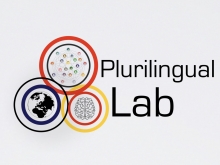Aisha Barise, PhD Candidate in Educational Studies - Language Acquisition Program at McGill University, is the winner of the 2024 Graduate Student Award. Each year the GSA award is made to the very best authors among the highest ranked proposals for papers submitted by graduate students for the annual AAAL Conference. The GSA award is a great recognition of Aisha Barise's excellent research in the field!. The award will be presented at the 2024 American Association for Applied Linguistics (AAAL) conference in Houston, Texas, March 16-19, 2024.
If you're attending the conference, check out Aisha's presentation:
African Linguicide and Linguistic Famine: Reckoning with Biomorphic Metaphors and the Materiality of Colonial Violence
African language reclamation is characterized by its multilingualism, whereby language boundaries are fluid, and languages are intertwined in a complex system that transcends limitations or hierarchies (Makalela, 2019). Despite this, it faces devaluation due to the enduring influence of colonial language ideologies and practices (Garcia & Lin, 2018). Such devaluation is often contested through various biomorphic metaphors such as: linguicide and linguistic famine. Indeed, language death is causative, as the term linguicide (Skutnabb-Kangas, 1995) seeks to identify and analyse the complexity of colonial violence beyond a “natural” paradigm. Enslaved Africans who sought to preserve their languages faced severe punishments, while the languages of the European plantation owners were reinforced (Baugh, 2015). The term linguistic famine (De Ngugi wa, 2009) draws a parallel between African languages and the scorched-earth policy, a common military and colonial strategy, that induces famine by destroying resources of the enemy. African languages and language users in the continent have experience a slow linguistic starvation, leading to the decline of once robust languages spoken by the builders of ancient cities in Africa (De Ngugi wa, 2009). Although these biomorphic metaphors highlight the intimate connection between humans, language, and environmental violence (Leonard, 2008; Nettle & Romaine, 2000), it risks reading language as merely a resource (Kaveh, 2023) and colonial violence as figurative (McKittrick, 2021). Nevertheless, metaphors are important in that they offer a way for us to move toward both a concrete and imagined future (McKittrick, 2006; 2021). This paper, critiques linking linguicide and linguistic famine to African language reclamation, as doing so reproduces a linear biocentric narrative (Wynter, 2003), which progresses African and Black life towards death. It concludes with a new way of re-imagining beyond the “doomed methods of analysis and action” (Gilmore, 2007, p. 241) where African language reclamation is life-filled (Sharpe, 2016; Titchkosky, 2015)."
Aisha is also presenting a second paper titled Linguistic (In-)Security in Sub-Saharan Africa: An Evidence Based Individual Language Policy Perspective to the Afrobarometer, with Martin Guardado and Rika Tsushima. You can check the conference searchable schedule here.
Aisha Barise's PhD research is being supervised by Dr. Angelica Galante. Congratulations, Aisha!

